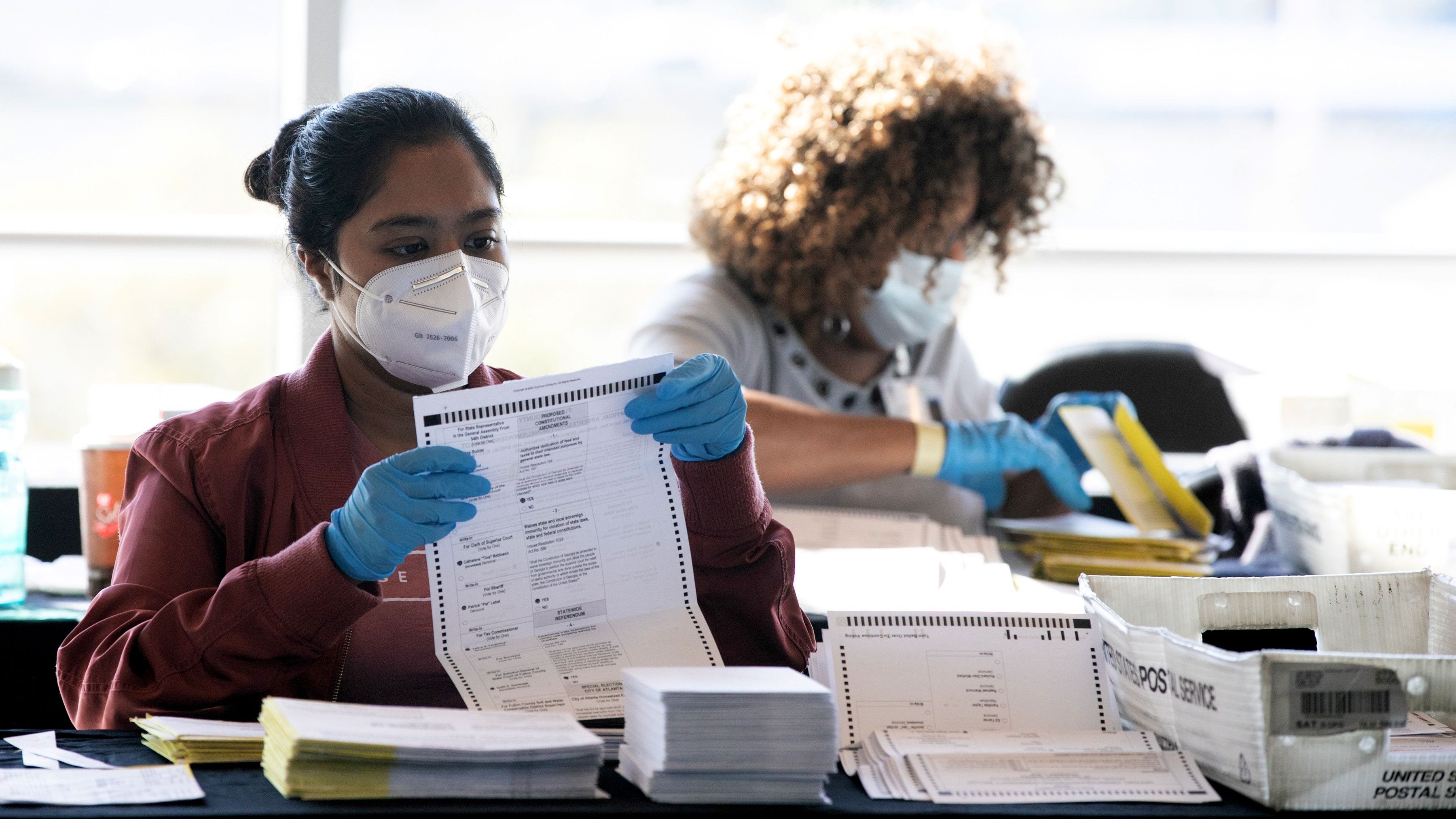What Happens if There's a Georgia Recount?
Razor-thin margins in the critical battleground state could point to a recount.


All eyes are on Georgia Friday morning as Joe Biden takes a small yet hugely consequential lead in the battleground state of Georgia, a state Donald Trump seized in 2016 and that hasn't voted blue since the election of Bill Clinton in 1992. While no official recount request has been made (according to state law, one cannot be made until after the result is certified), the slight margin is ripe for a recount request. Trump has already announced his plan to ask for a recount in Wisconsin and it's likely that we'll see recounts in other key states, including Michigan and, yes, Georgia.
Here's what would happen if there was a recount in the Peach State:
Is there an automatic recount rule in Georgia?
No, there is no automatic recount rule in Georgia.
Can a candidate request one?
Yes. If the margin is less than or equal to .5 percent of total votes cast, a candidate can request an official full recount. The request must be made within two business days after the final tally of votes is certified (the deadline for certification is November 17, so it’s possible we won’t even see a recount until then).
Can anyone else request one?
Actually, yes. Recounts can also be requested at this discretion of election superintendents, regardless of the lead margin, if they believe there has been a discrepancy or error in the counting. Voters can also ask for a recount if they believe fraud took place.
How long would a recount take?
It’s hard to say—in Georgia, there is no deadline for recount completion.
Who would pay for it?
The state covers all recount costs.
Get exclusive access to fashion and beauty trends, hot-off-the-press celebrity news, and more.
What now?
Georgia has long been at the center of conversation about voter suppression tactics. For years, organizations like Stacey Abrams' Fair Fight have been working tirelessly to protect people's right to vote and make sure every vote is counted in Georgia and across the country. That hard work is paying off in this election; it's up to us to keep the positive momentum moving forward.
Megan DiTrolio is the editor of features and special projects at Marie Claire, where she oversees all career coverage and writes and edits stories on women’s issues, politics, cultural trends, and more. In addition to editing feature stories, she programs Marie Claire’s annual Power Trip conference and Marie Claire’s Getting Down To Business Instagram Live franchise.
